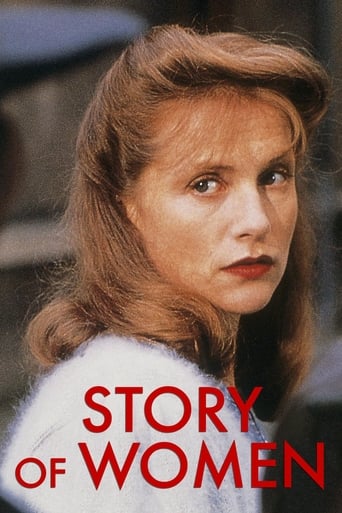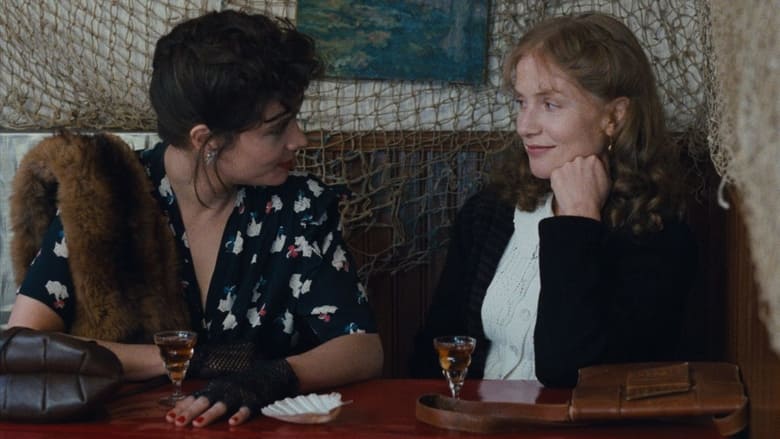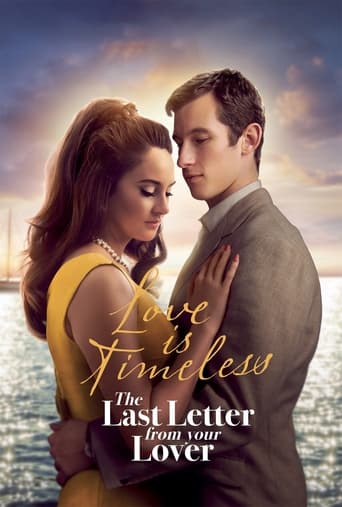

Story of Women (1988)
France, World War II. In order to somehow make ends meet, the mother of two children, Marie Latour, does underground abortions and rents a room to a familiar prostitute. She doesn't pay any attention to her husband, who returned from the war because of his injury and lives her own life. Abortions gradually begin to bring a good income, and boredom can be easily dispelled by starting a young lover.
Watch Trailer
Cast
Similar titles




Reviews
Entertaining from beginning to end, it maintains the spirit of the franchise while establishing it's own seal with a fun cast
The story, direction, characters, and writing/dialogue is akin to taking a tranquilizer shot to the neck, but everything else was so well done.
Let me be very fair here, this is not the best movie in my opinion. But, this movie is fun, it has purpose and is very enjoyable to watch.
The movie really just wants to entertain people.
Marie Latour, a woman of limited schooling, raises two children in a ratty flat during World War II in occupied France. In 1941, her husband Paul returns from German captivity, too weak to hold a job. Marie discovers she can make money performing abortions, using a soapy water douche. Many of her clients are knocked up by occupying Germans.The film is based on the true story of Marie-Louise Giraud, guillotined on July 30, 1943, for having performed 27 abortions in the Cherbourg area, and oddly enough has been embraced by John Waters. Waters is typically known more for endorsing "Christmas Evil" than French cinema, but this just goes to show how diverse his love is.I find it quite interesting that the French women are getting pregnant by German soldiers. While this is a frequent consequence of war (though hopefully diminishing), and virtually created modern Sicily, it is a rare thing to see it show up in a film. For that, I applaud them.
With cool detachment and a subtle touch of horror, Claude Chabrol dissects the story of a woman who was guillotined during the Nazi occupation of France. One of his strengths as a director is that he allows the movie goer to form his/her own thoughts and opinions about the issues at hand. He is not a proselytizer. The film covers a lot of ground: illegal abortion, collaborating with the enemy, parenting, marital communication, greed and a slew of other human weaknesses. All of this against the backdrop of an occupied France, a country who witnessed the horrors of WWI and never fully recovered, and whose WWII soul (what is left of it) has been torn apart.Isabelle Huppert does a fine job interpreting Marie LaTour, the woman in question. Marie is not the most sympathetic of characters. In fact, most of the major characters are not "sympathique".(My favorite character is the prostitute Lulu, acted by Marie Trintignant.)All in all a well directed, well structured film about a tragic period in the lives of the French people. But you be the judge.Trivia: "Vera Drake" and "L'Affaire de Femmes" both begin in apartments which have the the same god awful green walls.
I'd like to focus on this film as a French film, not of the United States. If one has seen "La Chagrin et la Pitie," then one knows the legacy of this film. France was not perfect during WWII. Not everyone in France was part of the resistance, mainly, they were trying to survive. I think its an amazing film that sheds light on a crucial point in French history. Yes, it's about abortion and Chabrol does a great job ensuring his abortionist is less than perfect. That's a wonderful point he makes, that no one is perfect, not even the moral majority of the government. But, I come away from this film with the same questions that I get from "Lacombe, Lucien," which are: 'what would I have done?' And, please, don't Monday morning quarterback World War II.
Claude Charbrol's stark and unsentimental masterpiece about the last woman to be executed in France--she was guillotined for performing abortions in Nazi-occupied France during World War II--forces us to see a side of war not often depicted. What does a woman with two little children do when her country is occupied by the brute forces of the enemy? How is she to find enough to eat, to buy the increasingly scarce and costly necessities of life? How is she to find joy in life? Women often turn to prostitution during such times, but Maire Latour does not. Instead she aborts the foetuses of the prostitutes and of other women impregnated, often by the Nazis. In a sense this is her "resistence." However she prospers and takes up with a Nazi collaborator. In the process she reduces her husband to frustration and humiliation.Isabelle Huppert as Marie Latour is mesmerizing in a role that allows her talent full latitude. She is clear-headed and sly as a business woman, warm and ordinary as a mother, cold and brutal as a wife, childish and careless as an adulteress, resourceful and fearless as an abortionist, and unrepentant as she awaits the executioner (foreshadowed, by the way, by her son, who wants to be an executioner when he grows up). Francois Cluzet plays her husband Paul, and he is also very good, especially at rousing our pity. Charbrol makes it clear that both Marie and Paul are victims, not only of war, but of their divergent natures. Paul wants the love of Marie, but she wants only a man that represents success and power, a man who is clean-shaven, not the menial worker that he is. Marie Trintignant is interesting and convincing as a prostitute who becomes Marie Latour's friend and business associate.While abortion is indeed "Une affaire de femmes" this film is about much more than that. No doubt the title is there to emphasize Charbrol's point that men really do not (did not then, and do not now) really understand abortion and why it is sometimes a horrible and abject necessity. When Marie is taken to Paris for a show trial she exclaims to a woman in jail with her, referring to the court that will pass judgment on her, "It's all men...how could men understand?" We can see that men really can't, and that precisely is what this movie is all about: showing us just how horrible pregnancy can be under the circumstances of enemy occupation.A secondary story here, not quite a subplot, is Paul's story. What does a man do when he and his children are dependent on a woman who doesn't love him, a woman who rejects him and even goes so far as to arrange for the cleaning woman to sleep with him? It is not only Marie who humiliates him, but it is the defeat of his country, the easy surrender to the Nazis that has so reduced him. This is made clear in a scene late in the film between two lawyers who voice their shame as Frenchmen in a time of defeat.What Paul does is not pretty (and I won't reveal it here), but so great is the provocation that one understands his behavior and can forgive him.(Note: Over 500 of my movie reviews are now available in my book "Cut to the Chaise Lounge or I Can't Believe I Swallowed the Remote!" Get it at Amazon!)








